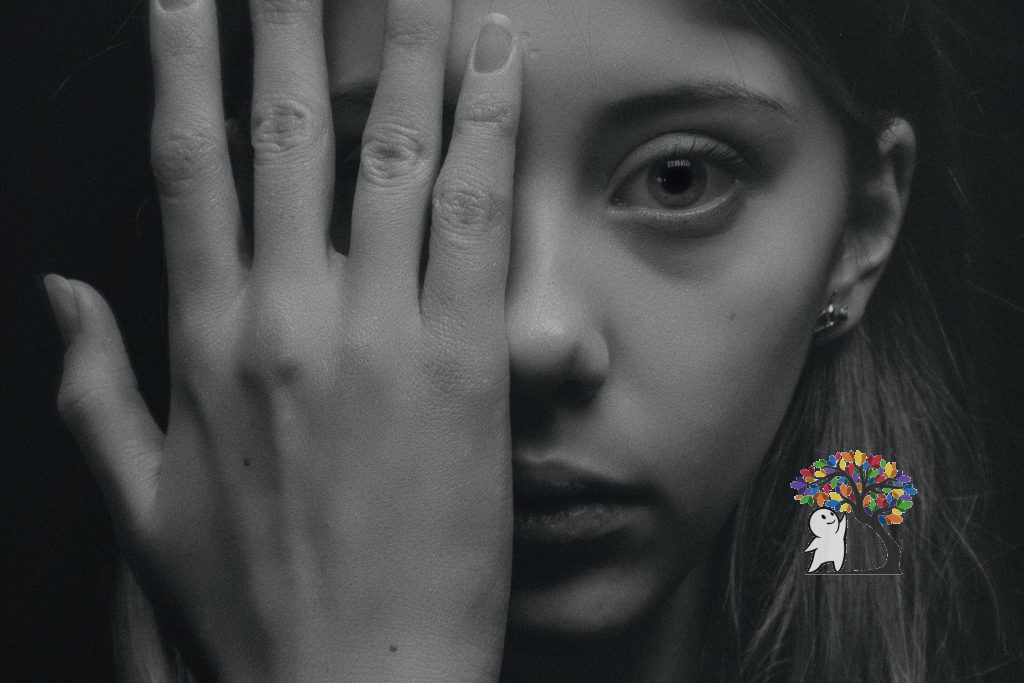Agoraphobia – Are You Afraid of Crowds?

Disclaimer: This article is for educational purposes.
Have you felt panicky at the thought of going out or being in large crowds? Have you deliberately arrived late to a group gathering because the thought of being among strangers made you panic?
If so, you may have agoraphobia.
According to the American Psychology Association, agoraphobia is an excessive irrational fear of being in unfamiliar places, resulting in the avoidance of public situations from which escape may be difficult.
However, agoraphobia is not just panic. It can also feel like an overwhelming sensation of dread or doom. That something will go wrong, even if it does not.
Though agoraphobia is concomitant with anxiety disorders, it can also occur on its own. Agoraphobia causes you to avoid places or situations that make you feel trapped, helpless, or embarrassed, such as large parties, shopping malls, or public transportation.
Generally, agoraphobia is caused by a panic disorder but there are other symptoms too. For example, having a family history of agoraphobia, harboring another phobia, or being a victim of abuse or trauma.
It is easy to conflate agoraphobia with other types of phobias. However, agoraphobia is the fear for rather than the fear of. For example, someone with agoraphobia might not want to fly on a plane because they fear that they will trigger or cause something, whereas someone who is aerophobic will not get on a plane because they fear that it will go down. The differences are nuanced but important.
When placed in these situations, you might feel chest pains, dizziness, shortness of breath, or feelings of unreality, as well as general anxiety. Sometimes, you may have a panic attack. Regardless of how the symptoms of agoraphobia present themselves, they will probably make you regret leaving home in the first place.
As someone who knows this phobia more than I would care to admit, I understand how difficult it can be to live with it. It might start out with an occasional cancelation of plans that, if left unchecked, can intensify and keep you homebound.
Hopefully, there are a few tools that can help you cope with your fears.
-
Exposure Therapy
Exposure therapy is part of cognitive-behavioral therapy. It asks you to confront the fears, slowly. Usually, a therapist will expose you to what you fear while teaching you relaxation strategies. This technique helps because it makes you recognize that you are not as helpless or vulnerable as you think. If you are, then it trains you to deal with that vulnerability.
-
Systemic Desensitization
Another good tool is systemic desensitization. Systemic desensitization trains you to take a step away from the overwhelming emotions that accompany your fears.
-
Grounding
Another good technique is grounding. Grounding works because it gets you out of your head and into your surroundings or closer to your physical self. Practice focusing on your breath and feeling the way your lungs expand and contract with each breath. Another way is by focusing on a color or item and looking to see how many of that particular item or object you can find in your surroundings.
-
Stress Management techniques
Some stress management techniques such as deep breathing and visualization can also help you let go of your fears.
-
Diet
Eating a healthy diet can help keep the stress hormones that usually accompany a panic attack in check. Having a nutritious diet and working out can better equip you to handle stress and anxiety.
Agoraphobia may feel crippling at first, but armed with knowledge and guided by a licensed therapist it is treatable. Please reach out to a licensed professional for more help.
Take care!
Sources:
Cherry, K. (2020, July 26). What Is Panic Disorder? Retrieved November 19, 2020, from https://www.verywellmind.com/what-is-a-panic-disorder-2795468
C. (2020). Agoraphobia: Symptoms, Causes & Treatments. Retrieved November 19, 2020, from https://my.clevelandclinic.org/health/diseases/15769-agoraphobia
Katharina Star, P. (2020, September 17). Did You Know There Are Different Types of Panic Attacks? Retrieved November 19, 2020, from https://www.verywellmind.com/types-of-panic-attacks-2584251
Mathew, H. (2014, October 14). Time to “Come Out” About Your Agoraphobia? Retrieved November, 2020, from https://www.psychologytoday.com/us/blog/unagoraphobic/201410/time-come-out-about-your-agoraphobia
Neuman, F., M.D. (2013, December 01). An Overview of Agoraphobia and Its Treatment. Retrieved November 19, 2020, from https://www.psychologytoday.com/us/blog/fighting-fear/201312/overview-agoraphobia-and-its-treatment
Neuman, F., M.D. (2013, May 23). A Cure for Panic Disorder and Agoraphobia. Retrieved November 19, 2020, from https://www.psychologytoday.com/us/blog/fighting-fear/201305/cure-panic-disorder-and-agoraphobia




Responses